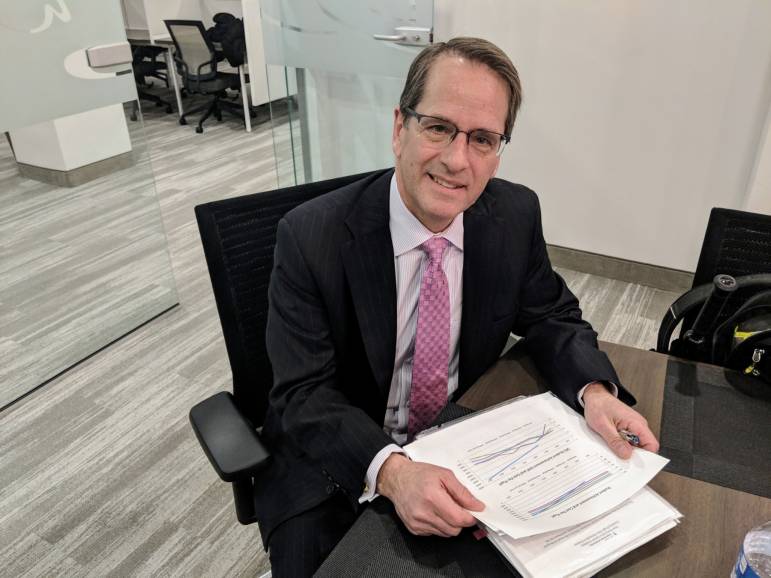
CONCORD, NH — The commissioner of the state Department of Education does not believe it will need all the special education money for school districts the House included in its budget.
Commissioner Frank Edelblut told the Senate Finance Committee Monday that last year a little less money was needed than appropriated to pay school districts for catastrophic special education costs.
The department and Gov. Chris Sununu put $30.8 million into the budget for the program that reimburses school districts which pay three-and-a-half times more than the state average for special education services, often students in out-of-state placements.
The House included $33.6 million for the program in light of a bill retained by the House Education Committee which would reduce eligibility from three-and-a-half times to two-and-a-half times the average cost. The bill will come before the House in January.
Edelblut told Senate budget writers the House was concerned last year’s requests were lower than anticipated due to the pandemic. If requests for reimbursements top the money available, the grants sent to school districts will be prorated, or less than requested.
He said the department has received additional federal funding for special education for emergency relief of $10.5 million.
That money will flow to the school districts for the next three years, Edelblut said, and together with the $30.8 million figure, he is confident there would be enough money to cover school districts’ costs.
He said the other consideration is the federal maintenance-of-effort requirement that would reduce the state’s grant if less money is appropriated in the future.
Senate Finance Committee Chair Sen. Gary Daniels, R-Milford, asked if the federal money would be reduced if the Senate lowered what the House put in the budget, and Edelblut said it would not.
It applies in the future whether budget writers included $30 million or $33 million, he said. But if in the future the program was reduced to $29 million the state grant would be reduced by a like amount, Edelblut explained.
Committee member Senate President Chuck Morse, R-Salem, noted the money would flow through the agency to school districts and Edelblut said that is correct.
Edelblut asked budget writers for an additional $1.5 million a year for a new student data information system that he said would save both the department and school districts time.
He said the current system is cumbersome and requires a great deal of fact-checking. And the new system would be much more secure, he said.
Edelblut made the same proposal to the House Finance Committee, which decided to not include the new system in its budget.
The commissioner also asked for eight new positions, all federally funded, including a manager for the $46 million federal charter school grant.
The Senate Finance Committee is hearing from state agencies through the end of the month before developing its version of the budget.
The Senate has a June 3 deadline to approve a new two-year operating budget. The House and Senate will have to reconcile their differences and approve a plan before the current biennium ends June 30.
Garry Rayno may be reached at garry.rayno@yahoo.com.







